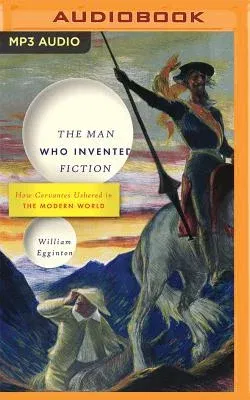William Egginton
(Author)The Man Who Invented Fiction: How Cervantes Ushered in the Modern WorldMP3 CD, 27 September 2016

Qty
1
Turbo
Ships in 2 - 3 days
In Stock
Free Delivery
Cash on Delivery
15 Days
Free Returns
Secure Checkout

Language
English
Publisher
Audible Studios on Brilliance
Date Published
27 Sep 2016
ISBN-10
1531864910
ISBN-13
9781531864910
Description
Product Details
Author:
Book Format:
MP3 CD
Country of Origin:
US
Date Published:
27 September 2016
Dimensions:
17.02 x
13.46 x
1.27 cm
ISBN-10:
1531864910
ISBN-13:
9781531864910
Language:
English
Publisher:
Weight:
45.36 gm